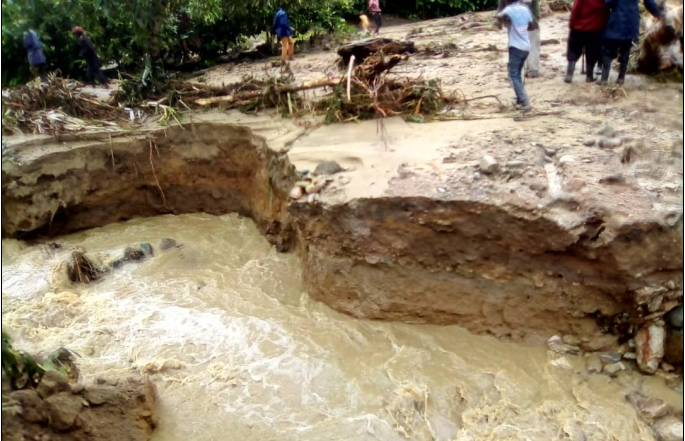Prime
Govt orders people to vacate flood-prone areas

This photo taken on September 3, 2022 shows River Ntotoro which flooded following overnight downpour in Bundibugyo District on September 2, 2022. PHOTO/LONGINO MUHINDO
What you need to know:
- Several lives have been lost and property destroyed by floods and landslides triggered by rain across the country.
The government has ordered people living in flood-prone areas to immediately vacate and resettle in safer places within their respective districts.
The Minister for Information, Communication and Technology and National Guidance, Dr Chris Baryomunsi, said, made the directive while addressing the press at the Uganda Media Centre yesterday.
He said the resolution was reached during a Cabinet meeting in Entebbe on Monday.
Dr Baryomunsi said that areas that will be vacated will be gazetted as national parks, forests or mountain reserves.
He added that the exercise will be first carried out in Bugisu Sub-region before moving to other disaster-prone areas in Kasese, Bundibugyo and Sebei.
“The government is mobilising resources to relocate affected families. Do not wait for the government, we know that people have cultural attachments to places where they have lived for a long time, but it doesn’t make sense for you to insist on staying in such areas and the following day, you are swept away by floods,” he said.
“Money will never be enough, but we must start relocating families that are vulnerable to floods. There is an organisation called Giving Directly, which has already started helping some families to acquire land where they will be relocated,” he added.
Dr Baryomunsi said the government has decided to relocate affected families within their districts of origin following resistance from them to be taken to distant districts.
“When floods displaced some people in Bududa, we relocated them to Kiryandongo District, but they kept going back to Bududa,’’ he said.
The affected families shunned relocation centres due to the attachments they had with their ancestral homes in addition to fear of being rejected by the host communities.
Several lives have been lost and property destroyed by floods and landslides triggered by rain across the country.
On Sunday, floods killed one person and displace many in Bulambuli District.
In August, floods claimed the lives of 29 people in Mbale City and 16 people in Kasese District and displayed hundreds in Obongi District.
The Prime Minister, Ms Robinah Nabbanja, last week announced that the government had secured more than 10 acres of land in Kasese where affected families would be settled.
In 2010, landslides killed about 150 people and displaced about 10, 000 others.
Environmentalists say human activities such as deforestation, cultivation on steep slopes, encroachment on wetlands and water corridors, mining, and quarrying continue to expose people to floods and landslides.
Background
In August, the Prime minister, Ms Robinah Nabbanja directed locals living near river banks in Bugisu and Sebei sub-regions to vacate such areas. She made the remarks during her visit to Mbale to assess the damage caused by floods that killed 25 people.




